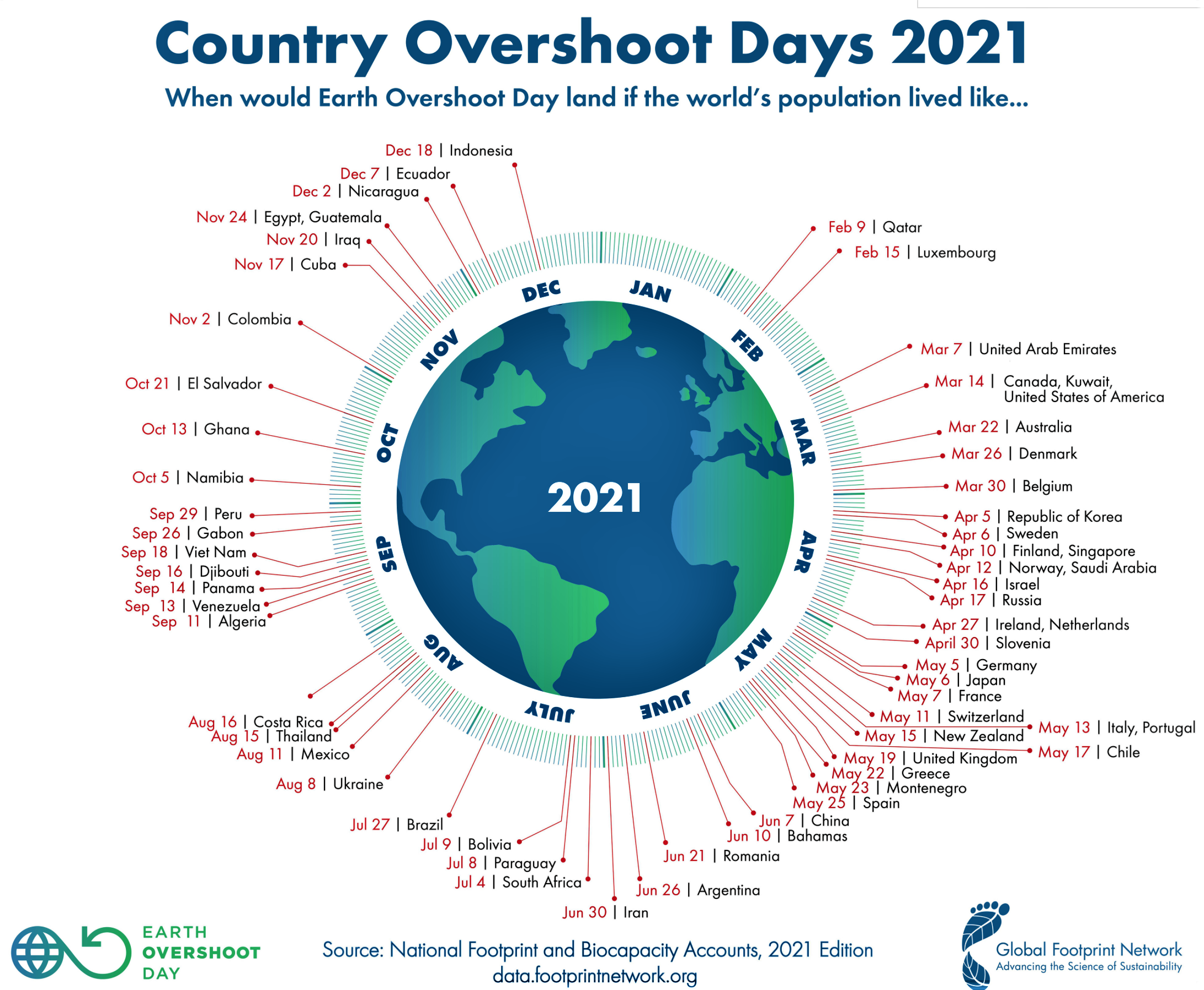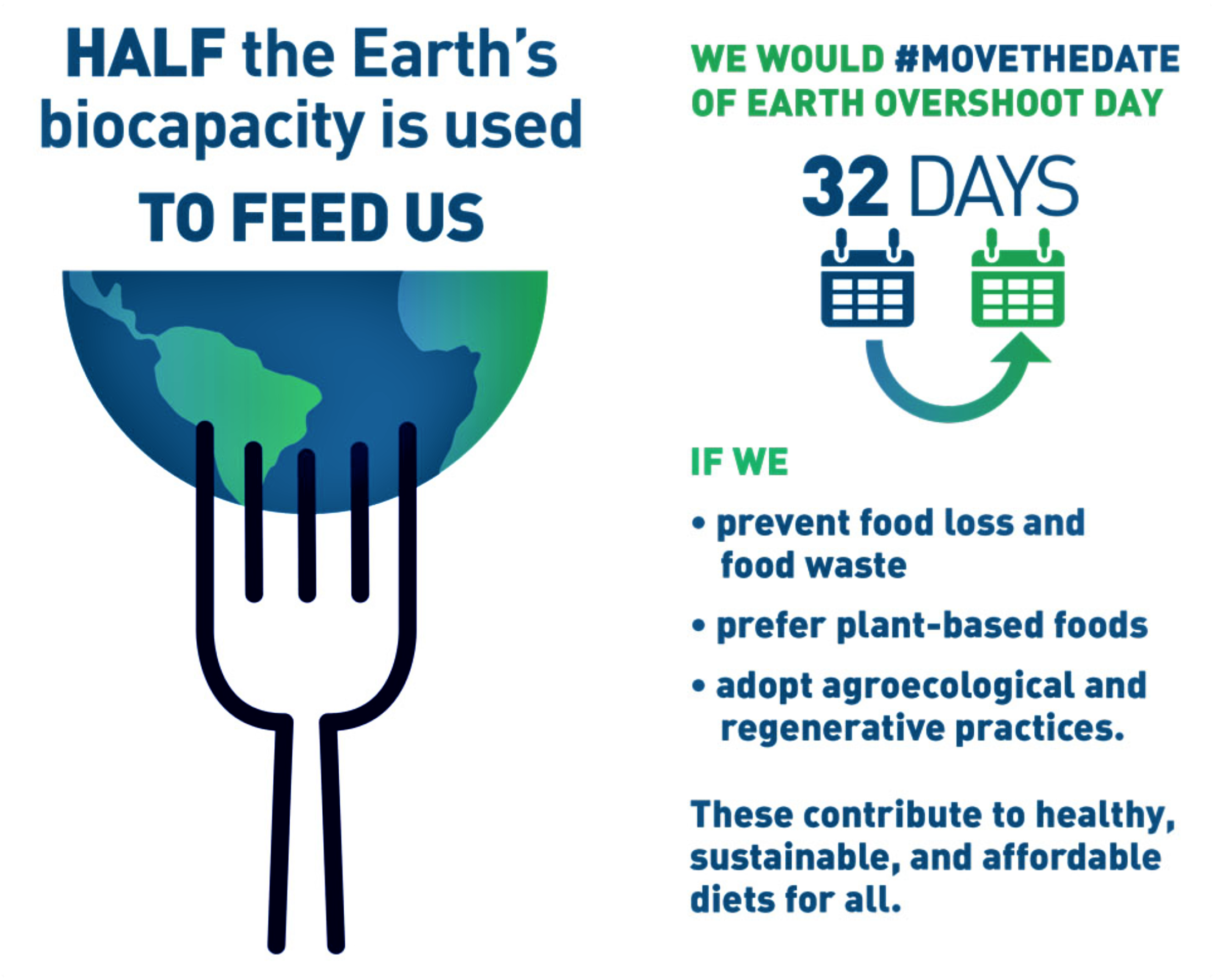Earth Overshoot Day for 2021 was July 29, the day when the annual capacity of our planet to replenish what we take from it ran out. We help ourselves to 74% more than global ecosystems can regenerate. It takes the resources of about 1.7 Earths every year to support living the way we do now. The above calendar compares the Earth Overshoot Day for different countries with the July 29 global average. The earlier the date, the higher the rate at which countries are consuming Earth’s biological resources.
While these figures represent the global biological balance sheet, three prominent experts are calling out the role of our food systems in helping drive Earth Overshoot Day earlier every year.
“The global food system is the single largest cause of the ecological and climate crises pushing Earth systems beyond the boundaries of a safe operating space for humanity”, said Jeremy Coller, chair of the $40-trillion FAIRR investor network, Johan Rockström, prominent climate scientist and director of the Potsdam Institute for Climate Impact Research and Dr. Gunhild Stordalen, executive chair of EAT Forum, in an Earth Overshoot Day commentary.
They went on to say, “Food systems shape societies and determine economic opportunity, but also drive the rapid spread of diet-related illness and threaten the vital ecosystem services — including clean air, fresh water, soil formation, pollination and climate stability — that make possible equitable prosperity and human existence itself.”
The three experts argue that animal agriculture plays an oversized role in the climate and biodiversity crises, with livestock using up nearly 80% of agricultural land. And beef requiring 20x more land and releasing 20x more GHG emissions per gram of edible protein than plant proteins, making agriculture responsible for a staggering 25% of global emissions.
“Hidden costs driven by industrial food systems pose a devastating threat to human health, the health of nature and the viability of our entire financial system and the wider economy.”
The experts cite one study that found the global food sector generates more in hidden costs like environmental damage, malnutrition and disease ($12 trillion) than it generates in market value ($10 trillion).
By eliminating food loss and waste, reducing meat consumption and choosing foods grown with more sustainable agricultural practices less reliant on fossil fuels, another month could be added to the Earth's biocapacity account. Shifting to more plant-based diets could help reduce food-related emissions as much as 70% by 2050, according to a recent draft report released by the UN’s Intergovernmental Panel on Climate Change.
To turn the tide, the three experts say we need to make sure the way we produce food is aligned with environmental goals e.g., cutting methane emissions from livestock and preventing the expansion of agriculture into natural ecosystems. “National commitments to curbing climate change and reversing biodiversity loss are impossible to achieve without transforming the world’s food system. It’s time for food to join the race to net-zero emissions by mid-century — to protect global food security and the health of people and ecosystems for generations to come.”


